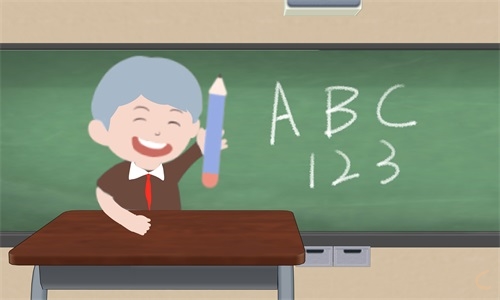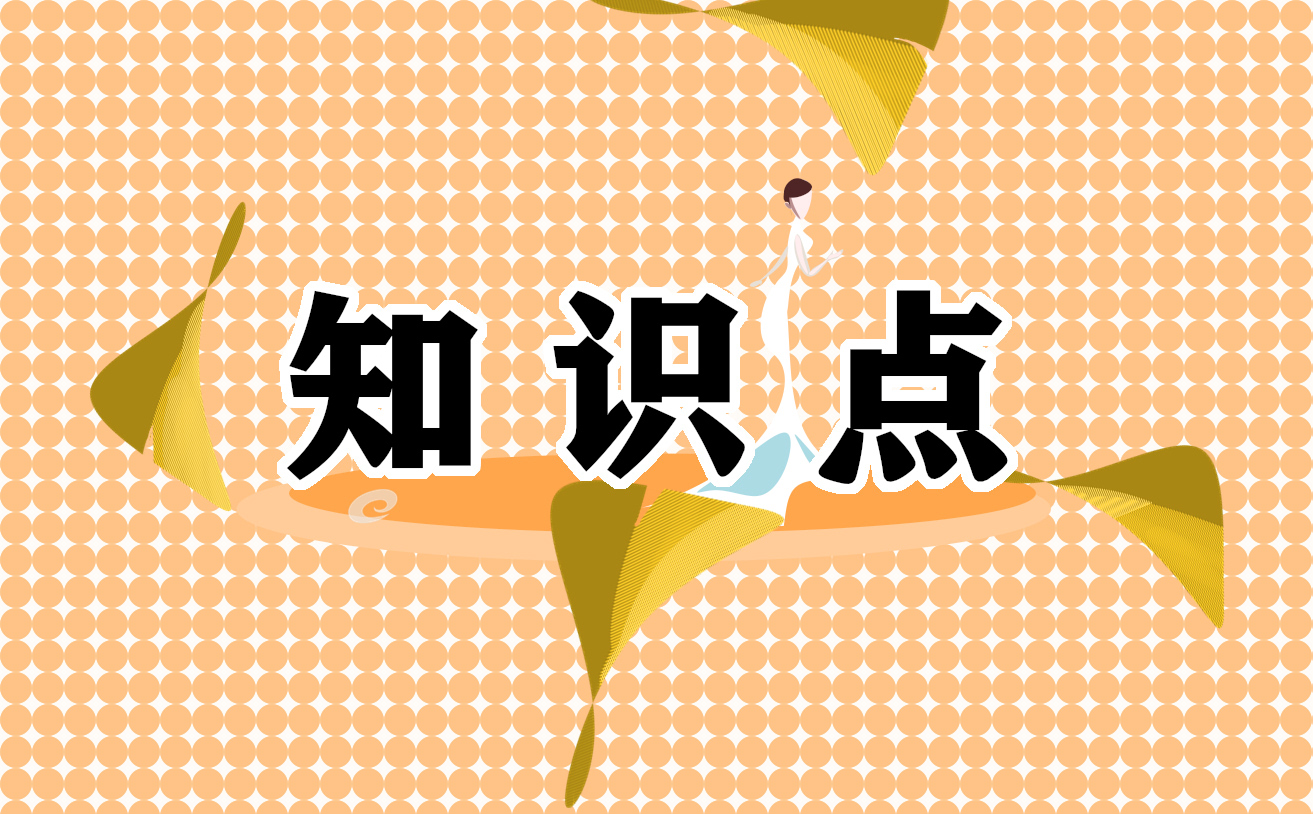初一下册英语知识点梳理
让学生利用闲余时间进行阅读就是帮助他们熟悉一些系统化的语法,这样有助于学生积累一些语法知识,将书本知识化为自己的知识。下面小编为大家带来初一下册英语知识点,希望大家喜欢!

初一下册英语知识点
1.回答why的提问要用because
2.Kind of 相当于副词,修饰形容词或副词,意为“稍微,有点”,与a little/ bit 相近
A kind of 意为“一种”,some kinds of 意为“几种”,all kinds of 意为“各种各样的”。这里的kind 是“种,类,属”的意思。
3.Why not =Why don’t you+V原 你为什么不…?
4.walk on one’s legs/ hands
on 意为“用…方式行走”
5.all day =the whole day整天
6.来自be/ come from
where do they come from?
=where are they from?
7.more than=over超过 less than 少于
8.once twice three times
9.be in great danger
10.one of… …之一 +名词复数
11.get lost
12.with/ without 有/ 没有 介词
13.a symbol of
14.由…制造 be made of能看出原材料
be made from 看不出原材料
be made in+地点 表产地
15.cut down 砍到
动副结构(代词必须放中间,名词可放中间或者后面)
初一下册英语知识点梳理
Unit 1 Can you play the guitar?
◆短语归纳
1. play chess 下国际象棋
2. play the guitar 弹吉他
3. speak English 说英语
4. English club 英语俱乐部
5. talk to 跟…说
6. play the violin 拉小提琴
7. play the piano 弹钢琴
8. play the drums 敲鼓
9. make friends 结交朋友
10. do kung fu 练 (中国) 功夫
11. tell stories 讲故事
12. play games 做游戏
13. on the weekend/on weekends 在周末
◆用法集萃
1. play +棋类/球类 下……棋,打……球
2. play the +西洋乐器 弹/拉……乐器
3. be good at doing sth.= do well in doing sth. 擅长做某事
4. be good with sb. 和某人相处地好
5. need sb. to do sth. 需要某人做某事
6. can + 动词原形 能/会做某事
7. a little + 不可数名词 一点儿……
8. join the …club 加入…俱乐部
9. like to do sth. =love to do sth. 喜欢/喜爱做某事
◆典句必背
1. Can you draw? Yes, I can. / No, I can’t.
2. What club do you want to join? I want to join the chess club.
3. You can join the English club.
4. Sounds good./That sounds good.
5. I can speak English and I can also play soccer.
6. Please call Mrs. Miller at 555-3721.
Unit 2 What time do you go to school?
◆短语归纳
1. what time 几点
2. go to school 去上学
3. get up 起床
4. take a shower 洗淋浴
5. brush teeth 刷牙
6. get to 到达
7. do homework 做家庭作业
8. go to work 去上班
9. go home 回家
10. eat breakfast 吃早饭
11. get dressed 穿上衣服
12. get home 到家
13. either…or… 要么…要么…
14. go to bed 上床睡觉
15. in the morning/ afternoon/ evening 在上午/下午/晚上
16. take a walk 散步
17. lots of=a lot of 许多,大量
18. radio station 广播电台
19. at night 在晚上
20. be late for=arrive late for 迟到
◆用法集萃
1. at + 具体时间点 在几点(几分)
2. eat breakfast/ lunch/dinner 吃早饭/午饭/晚饭
3. thirty\half past +基数词 ……点半
4. fifteen\a quarter to +基数词差一刻到……点
5. take a/an +名词 从事……活动
6. from …to … 从……到……
7. need to do sth 需要做某事
◆典句必背
1. What time do you usually get up? I usually get up at six thirty.
2. That’s a funny time for breakfast.
3. When do students usually eat dinner? They usually eat dinner at a quarter to seven in the evening.
4. In the evening, I either watch TV or play computer games.
5. At twelve, she eats lots of fruit and vegetables for lunch..
6. She knows it’s not good for her, but it tastes good.
7. Here are your clothes.
Unit 3 How do you get to school?
◆短语归纳
1. get to school 到达学校
2. take the subway 乘地铁
3. ride a bike 骑自行车
4. how far 多远
5. from home to school 从家到学校
6. every day 每天
7. take the bus 乘公共汽车
8. by bike 骑自行车
9. bus stop 公共汽车站
10. think of 认为
11. between … and … 在…和…之间
12.one 11-year-old boy 一个11岁的男孩
13. play with … 和…玩
14. come true 实现
15. have to 不得不
◆用法集萃
1. take… to …= go to … by… 乘…去…
2. How do / does (sb)get to …?…是怎样到…的?
3. How far is it from … to …?从…到…有多远?
4. It takes sb. some time to do sth. 做某事花费某人多长时间。
5. How long does it take to do sth.? …花费多长时间?
6. It is + adj. + to do sth. 做某事是….
7. Thanks for + n. / Ving 感谢你(做)某事。
◆典句必背
1. How do you get to school? I ride my bike.
2. How far is it from your home to school?
3. How long does it take you to get to school?
4. For many students, it is easy to get to school.
5. There is a very big river between their school and the village.
初一英语下册知识点总结
一. 情态动词can的用法
can+动词原形,它不随主语的人称和数而变化。
1. 含有can的肯定句:主语+can+谓语动词的原形+其他。
2. 含有can的否定句:主语+can't+动词的原形+其他。
3. 变一般疑问句时,把can提前:Can+主语+动词原形+其他? 肯定回答:Yes,主语+can。否定回答:No,主语+can't.
4. 含有can的特殊疑问句:特殊疑问词+can+主语+动词原形+其他?
I can speak English.→I can't speak English.→Can you speak English? →What can you speak?
二. what time和when引导的特殊疑问句
1. 询问钟点时用what time,询问日期、月份、年份时用when。
2. What's the time?=What time is it?现在几点了?
3. 时刻表达法:顺读法和逆读法。
顺读法:“钟点+分钟”直接读数字。
如:7: 05 seven five;8:16 eight sixteen
逆读法:借助介词past或to表示,要先说分再说钟点。
a. 当分钟不超过30分钟时(包括30分钟),即<或=30,用past表示。其结构为:“分钟+past+整点” 意为“几点过几分”。
如:1:25 twenty-five past one
b. 当超过30分钟时,即>30,用to表示。其结构为:“所差分钟(即60—所 过分钟数)+to+下一个整点”,to译成“差”,差几分钟到几点。
如:4:38 twenty-two to five
c. 当分钟为30分钟用half表示,当分钟为15分钟用a quarter。
三. how引导的特殊疑问句
1. how 引导的特殊疑问句提问交通方式,其答语分三种情况:
a. take a/an/the+交通工具(单数)
b. by+交通工具(单数)
c. on/in+限定词+交通工具
---How do you go to school every day?
---I take a bus to go to school every day./I go to school by bus every day./I go to school on the bus every day.
2. how far 用来提问距离,多远,其答语分为两种:
(1)用长度单位表示:It is five kilometers.
(2)用时间表示:It’s twenty minutes’walk.
3. how long 用来提问时间,意为多久回答常用“for+段时”。
----How long have you learnt English?
----For 3 years.
4. how soon 用来提问做完某事还需要多长时间, 用于将来时态, 常用“in+时间段”来回答。
----How soon will you arrive in Beijing? ----In 3 hours.
四. 祈使句
祈使句一般表示请求、命令、劝说、号召、警告等。一般以动词原形开头,句末可以用感叹号或句号。
1. 肯定的祈使句:
(1) 实义动词原形+其他 :Please look at that boy.
(2) be动词原形+形容词+其他:Be quiet, please.
2. 否定的祈使句:
(1) Don’t+实义动词+原形 Don't stand there.
(2) Don’t be+形容词+其他 Don't be so noisy.
(4) No+n./V-ing
No photos. 不许照相。
No talking. 不许谈话。
五. 现在进行时
现在进行时指当前时间正在发生的动作。常与now,at this moment,listen,look等词连用。
1. 现在进行时的基本结构
肯定式:am/is/are+doing(现在分词)
否定式:am/is/are not +doing(现在分词)
一般疑问式:Am/Is/Are + 主语 +doing(现在分词)+ 其他
特殊疑问式:特殊疑问词+一般疑问式
They’re having a meeting now. 他们现在正在开会。
They aren't having a meeting now. 他们现在没有在开会。
Are they having a meeting now? 他们现在正在开会吗?
What are they doing now? 他们现在正在做什么?
2. 现在进行时的基本用法
(1)表示此时此刻正在发生的事情。常与now,at the moment,look,listen等词连用。
The little boy is watching TV now. 这个小男孩现在正在看电视。
Listen!She is playing the guitar in the next room. 听!她正在隔壁房间弹吉他。
(2)表示现阶段一直在进行着或是重复发生着的动作,不强调此时此刻正在做。常与表示时间段的时间状语连用。
I am studying computer this term. 这个学期我一直在学习计算机。
(3)表示说话人褒义或贬义的情感色彩,如赞许、批评、喜欢、厌恶等。此时常与alway、often等频度副词连用。
He is always thinking of others , not of himself. 他总是为他人着想,而不为自己。(表示赞许)
One of my roommates is often leaving things about. 我的一个室友经常乱扔东西。(表示不满)
(4)表示在近期按计划或安排要发生的动作。(现在进行时表示一般将来的含义。)
① 瞬时动词的进行时在任何情况下都表示将来含义。这些动词包括go , come , leave,arrive , return等。
I am leaving.
我将要离开了。
I am leaving tomorrow.
我将会明天离开。
② 持续动词的进行时,只有在有将来时间状语或将来语境的情况下才可以表示将来含义。
An American professor is giving a lecture this afternoon.
今天下午一位美国教授将要作报告。(将来含义)
An American professor is giving a lecture.
一个美国教授正在作报告。(进行含义)
3. 现在分词(doing)的变化规则
(1)一般在情况下,在动词词尾加-ing。
go——going
play——playing
know——knowing
(2)以不发音的字母e结尾动词,先去e再加-ing。
make——making
arrive——arriving
come——coming
(3)以重读闭音节结尾,且动词词尾只有一个辅音字母时,先双写这个辅音字母,再加-ing。
run——running
stop——stopping
swim——swimming
run——running
put——putting
sit——sitting
begin——beginning
plan——planning
cut——cutting
get——getting
shop——shopping
chat——chatting
regret——regretting
dig——digging
(4)以-ie结尾,先将-ie改成y,再加-ing。
tie——tying
die——dying
lie——lying
六. There be结构
1. There be句型主要用以表达“某处有某人(某物),强调存在”其基本结构为“There be+某物(某人)+某地”,有时为了强调地点,也可把地点状语放在句首。
There is a book on the desk.
On the desk there is a book.
(1)肯定句:“There be+主语(某人/某物)+介词短语”
There are three people in my family. 我家有三口人。
There is a pen and two books on the desk. 书桌上有一支钢笔和两本书。
(2)否定式:“There be +not+主语+介词短语”
There isn’t a boy in the room.房间里没有一个男孩。
There aren’t any books on the desk.书桌上没有书。
注意:“There be句型”的否定式的构成和含有be动词的其他句型一样,在be后加not或no即可。
注意not和no的不同:not是副词,no为形容词,所以not a/an/any+n,相当于no+n。
There aren’t any pictures on the wall.
=There are no pictures on the wall.
There isn’t a bike behind the tree.
=There is no bike behind the tree.
(3)疑问式:Be there+主语+介词短语?”
肯定回答是:“Yes, there be.”否定回答是:“No, there+be与not的缩写形式”。
—Is there a lamp in your bedroom?在你的卧室里有台灯吗?
—Yes, there is.是的,有。
—Are there any clock in the living room?客厅里有钟吗?
—No, there aren’t.不,没有。
(4)特殊疑问句:一般有两种句型结构
How many+复数名词+are/were there+介词短语?
There’re many children in the park.
How many children are there in the park?
How much+不可数名词+is/was there+介词短语?
There was little rain around the year.
How much rain was there around the year?
2. have表示“某人拥有某人或某物,强调拥有和所属关系”。
The man has two cars.
3. There be句型中的就近原则,即be和距其最近的主语保持一致。
There are some pens and a book on the floor. =There is a book and some pears on the floor.
七. 选择疑问句
选择疑问句是指说话人提出两种或以上的情况,让对方选择是哪一种,两个选择部分用or连接。选择疑问句不用yes或no来回答,直接在两个选择里选一个回答。
---Is she tall or short? ---She is tall.
---Can you play the piano or play the guitar? ---I can play the piano
八. 名词
1. 名词单数变复数规则
在英语里面,名词分可数名词(countable noun)和不可数名词(uncountable noun)。不可数名词没有单复数之分,用时只当单数词用;可数名词有单复数之分,一个的前面要用a或an,eg: a pencil, a basketball, a dictionary, an egg, an ID card,而复数即两个或两个以上的要作相应的变化,情况如下:
(1)一般的词在单数词后直接+“s”
book→books,pen→pens,car→cars,map→maps,cartoon→cartoons
(2)以s,x,sh,ch结尾的词+“es”
box→boxes,watch→watches
(3)以辅音字母+y结尾的名词去掉“y”,改成“i”,再加“es”
family→families,comedy→comedies
(4)以f或fe结尾的词,先去掉f或fe,改成“v”再加es
knife→knives,wife→wives,handkerchief→handkerchieves
(5) 特殊词,特殊变化,需单独记:
child→children,man→men,foot→feet,woman→women
tooth→teeth,sheep→sheep,deer→deer
2. 既是可数名词又是不可数名词的单词
chicken当“鸡肉”讲时是不可数,当“小鸡”讲时可数;
room当“空间”讲时不可数,当“房间”讲时可数;
fish当食物用“鱼、鱼肉”讲时不可数,当“鱼的种类”讲时可数;
hair泛指“毛发”时不可数,当“一根或几根毛发”讲时可数;
sound意思是“一般性的声音”时,不可数,指“一次发出的声音”时可数;
paper当“纸”讲时不可数,当“试卷”、“论文”、“证件”讲时可数;
time当“时间”讲时不可数,当“时代、倍数、次数”讲时可数;
exercise泛指“锻炼”时不可数,当“练习、做操”讲时可数
九. 一般过去时
一般过去时表示在过去某个时间所发生的动作或所处的状态(与现在无关) 。常与yesterday, last week, in 1989, just now, a moment ago, the other day等过去具体时间状语连用。
He was here just now.
他刚才还在这里。
What did you do yesterday?
你昨天做了什么事?
一般过去时基本结构
1. 肯定句形式:主语+动词过去式+其他
I was an English teacher one year ago.
一年前我是一名英语老师。
I bought a yellow dress yesterday afternoon.
昨天下午我买了一条黄裙子。
2. 否定句形式:①was/were+not; ②在行为动词前加didn't,同时还原行为动词
I wasn't an English teacher one year ago.
一年前我不是一名英语老师。
I didn't buy a yellow dress yesterday afternoon.
昨天下午我没买一条黄裙子。
3. 一般疑问句:①was/were提到句首; ②Did+主语+动词原形+其他?
Were you an English teacher one year ago?
一年前你是一名英语老师吗?
Did you buy a yellow dress yesterday afternoon?
昨天下午你买了一条黄裙子吗?
4. 特殊疑问句:特殊疑问词+一般疑问句
What were you one year ago?
一年前你是做什么的?
初一下册英语必背知识点归纳
Unit 1 Can you play the guitar?
◆短语归纳
1、 play chess 下国际象棋
2、 play the guitar 弹吉他
3、 speak English 说英语
4、 English club 英语俱乐部
5、 talk to 跟…说
6、 play the violin 拉小提琴
7、 play the piano 弹钢琴
8、 play the drums 敲鼓
9、 make friends 结交朋友
10、 do kung fu 练 (中国) 功夫
11、 tell stories 讲故事
12、 play games 做游戏
13、 on the weekend/on weekends 在周末
◆用法集萃
1、 play +棋类/球类 下……棋,打……球
2、 play the +西洋乐器 弹/拉……乐器
3、 be good at doing sth.= do well in doing sth. 擅长做某事
4、 be good with sb. 和某人相处地好
5、 need sb. to do sth. 需要某人做某事
6、 can + 动词原形 能/会做某事
7、 a little + 不可数名词 一点儿……
8、 join the …club 加入…俱乐部
9、 like to do sth. =love to do sth. 喜欢/喜爱做某事
◆典句必背
1、 Can you draw? Yes, I can. / No, I can’t.
2、 What club do you want to join? I want to join the chess club.
3、 You can join the English club.
4、 Sounds good./That sounds good.
5、 I can speak English and I can also play soccer.
6、 Please call Mrs. Miller at 555-3721.
Unit 2 What time do you go to school?
◆短语归纳
1、 what time 几点
2、 go to school 去上学
3、 get up 起床
4、 take a shower 洗淋浴
5、 brush teeth 刷牙
6、 get to 到达
7、 do homework 做家庭作业
8、 go to work 去上班
9、 go home 回家
10、 eat breakfast 吃早饭
11、 get dressed 穿上衣服
12、 get home 到家
13、 either…or… 要么…要么…
14、 go to bed 上床睡觉
15、 in the morning/ afternoon/ evening 在上午/下午/晚上
16、 take a walk 散步
17、 lots of=a lot of 许多,大量
18、 radio station 广播电台
19、 at night 在晚上
20、 be late for=arrive late for 迟到
◆用法集萃
1、 at + 具体时间点 在几点(几分)
2、 eat breakfast/ lunch/dinner 吃早饭/午饭/晚饭
3、 thirty\half past +基数词 ……点半
4、 fifteen\a quarter to +基数词差一刻到……点
5、 take a/an +名词 从事……活动
6、 from …to … 从……到……
7、 need to do sth 需要做某事
◆典句必背
1、 What time do you usually get up? I usually get up at six thirty.
2、 That’s a funny time for breakfast.
3、 When do students usually eat dinner? They usually eat dinner at a quarter to seven in the evening.
4、 In the evening, I either watch TV or play computer games.
5、 At twelve, she eats lots of fruit and vegetables for lunch.。
6、 She knows it’s not good for her, but it tastes good.
7、 Here are your clothes.
Unit 3 How do you get to school?
◆短语归纳
1、 get to school 到达学校
2、 take the subway 乘地铁
3、 ride a bike 骑自行车
4、 how far 多远
5、 from home to school 从家到学校
6、 every day 每天
7、 take the bus 乘公共汽车
8、 by bike 骑自行车
9、 bus stop 公共汽车站
10、 think of 认为
11、 between … and … 在…和…之间
11-year-old boy 一个11岁的男孩
13、 play with … 和…玩
14、 come true 实现
15、 have to 不得不
◆用法集萃
1、 take… to …= go to … by… 乘…去…
2、 How do / does (sb)get to …?…是怎样到…的?
3、 How far is it from … to …?从…到…有多远?
4、 It takes sb. some time to do sth. 做某事花费某人多长时间。
5、 How long does it take to do sth.? …花费多长时间?
6、 It is + adj. + to do sth. 做某事是…。
7、 Thanks for + n. / Ving 感谢你(做)某事。
◆典句必背
1、 How do you get to school? I ride my bike.
2、 How far is it from your home to school?
3、 How long does it take you to get to school?
4、 For many students, it is easy to get to school.
5、 There is a very big river between their school and the village.
初一英语学习方法建议
一、专心听课
用心识记上课时应做到:眼到、口到、手到、心到。努力在课内有目标有意识地去识记该课的生词、短语、句型、重点句子。强迫自己在课内记住这节课最重要的内容,这样,使自己真正体会到"这节课学到不少东西"的踏实感、成就感,进而激发动机,提高兴趣,更有信心去迎接今后的学习。
二、勤记笔记
课堂上做笔记可以帮助集中注意力,理顺思路,增进记忆,锻炼分析归纳、综合概括以及快速反应的能力。笔记也为日后复习提供记忆纲要。
三、及时、经常、科学地复习
要解决困扰学习者最大的知识遗忘问题,只有靠科学的复习。从时间安排上讲,复习既要及时又要经常,不仅在当天,而且在第二天、一周后、一个月后、在你需要用它之前、在考试前都要安排复习。温故而知新,从而更牢固地掌握知识。
初一下册英语知识点
上一篇:2023年成人高考英语真题带答案
下一篇:返回列表






